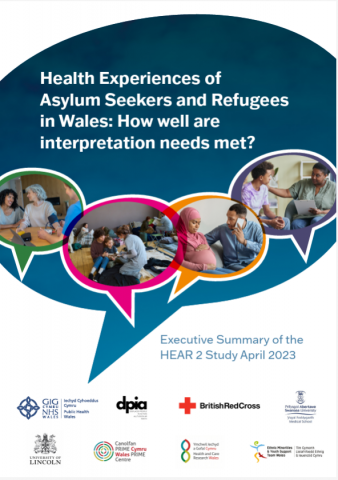A new study has examined the provision of NHS care in Wales and has gathered “valuable insight” into how sanctuary seekers are treated.
The findings comes from Public Health Wales and Swansea University who have collaborated to assess the quality of interpretation services in primary and emergency care, with recommendations for a range of key stakeholders also detailed.
The research found that, while patients were generally satisfied with the interpretation services provided to them, some improvements could be made.
Issues included friends and family having to provide interpretation for patients, thus inhibiting their privacy during consultations; a lack of continuity between different health visits in terms of who was delivering the interpretation services; and the services not being provided by the appropriate gender, or in the right dialect.

The research team outlined recommendations for everyone from policy makers in the Welsh Government and the NHS, all the way to local authorities and researchers themselves.
Some of the recommendations included:
- For the government:
- Developing commissioning guidance and standards for interpretation services in healthcare – similar to that which already exists in England and Scotland
- Launching regular reviews into the provision and commissioning of interpretation services in healthcare
- For the NHS:
- Designing processes that enable patients to book primary care appointments in their native language
- Training staff on how to work in conjunction with interpreters and what services patients are entitled to
- For researchers:
- Establishing UK-wide evaluations of interpretation services for asylum seekers and refugees
- Ensuring recruitment methods mirror the research questions and population sought
The work was supported by a range of third sector organisations including the British Red Cross, the Ethnic Youth Support Team, and Displaced People in Action.
To read the full study findings, click here.
Image credit: iStock



















